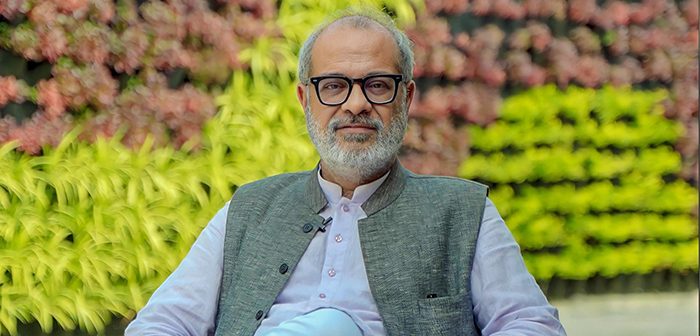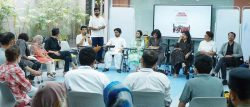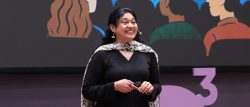Next year Habib University will celebrate ten years of existence. In this brief period of time, Habib has established itself as one of Pakistan’s top undergraduate institutions – and certainly singular in its curricular and intellectual paradigm. As a cohort, our graduates are unmatched in their understanding of the modern world they have inherited, its essential structures and historical trajectories.
Whether they are scientists and engineers, or artists and scholars, Habib University students and alumni are unrivaled, too, in their perception and understanding of what is broken and damaged in our world – and of the thoughtfulness and resources, the orientation and vision, needed to heal and repair it, individually and collectively, globally and regionally. In a world drowning in delusion and frivolity, they carry a certain sanjeedgi (seriousness or maturity) that projects the light of attention and knowledge into our darkening world.
Essential to this vision and to our reputation as an intellectually bold and unique enterprise in higher education, has been our flagship Postcolonial Higher Education Conference (PHEC). While calls for the decolonization of education resound around the world, Habib University is unique not only in its actual institutionalization of such a paradigm, but in the original path we have marked in this direction. For even as the noble and universally salvific goal of decolonization is opportunistically co-opted by nativists and nationalists in many places, Habib University has remained apart in its unswerving commitment to a pluralist and globalist – i.e., a genuinely and strenuously universalist – path as the only hope of a substantive postcolonial future. The PHEC is an embodiment of this commitment.
Beginning in 2013, in its past iterations the PHEC has featured general investigations into the postcolonial reorientation of higher education, the contemporary landscape of injustice in its many forms, the contours of a reparative global and regional future, and the endemic nature of White supremacism in our regional modernities. This year, our conference will investigate the urgent question of the ethical and spiritual aspects of the Islamic tradition that are increasingly repressed – thanks to the colonization of religion by resurgent, hypermodern nationalisms.
The great literary critic, Shamsur Rahman Faruqi, once remarked with urgency that we are unaware of what we have lost – and are losing. In the present case, what could possibly be a greater loss than the recession of the very contemplative heart of our traditions: their spiritual and ethical inheritance? In this sense, this year’s PHEC – on ‘The Ethical and the Spiritual in Islam: Pasts, Presents, Futures’ – is critical to Habib’s reparative vision.
As the chair of the Postcolonial Higher Education Conference, I therefore urge you to please participate in the conference with the collective enthusiasm appropriate to our radical and luminous mission in this darkening world.
To register for the event please visit: https://habib.edu.pk/phec/register.html





